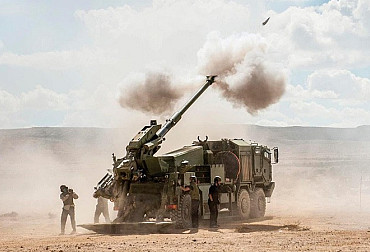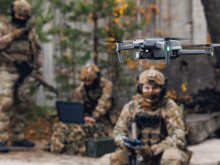The Military Solidarity Fund is much more than a safety rope
It helps soldiers, but also war veterans and their families. We are talking about the Military Solidarity Fund, a joint project of the Ministry of Defence and the Charity of the Czech Republic. The impetus for its establishment was the death of five Czech soldiers in Afghanistan in July 2014 after a suicide bomber attack. In light of this tragedy, it became clear that there was a lack of a systemic tool capable of responding flexibly to similarly serious events. The Military Solidarity Fund was established on 9 March 2015 as a means of direct and, more importantly, immediate assistance to soldiers facing serious life circumstances. Last year brought another key milestone, as the Fund's assistance was extended to support soldiers up to five years out of service, war veterans and their families.
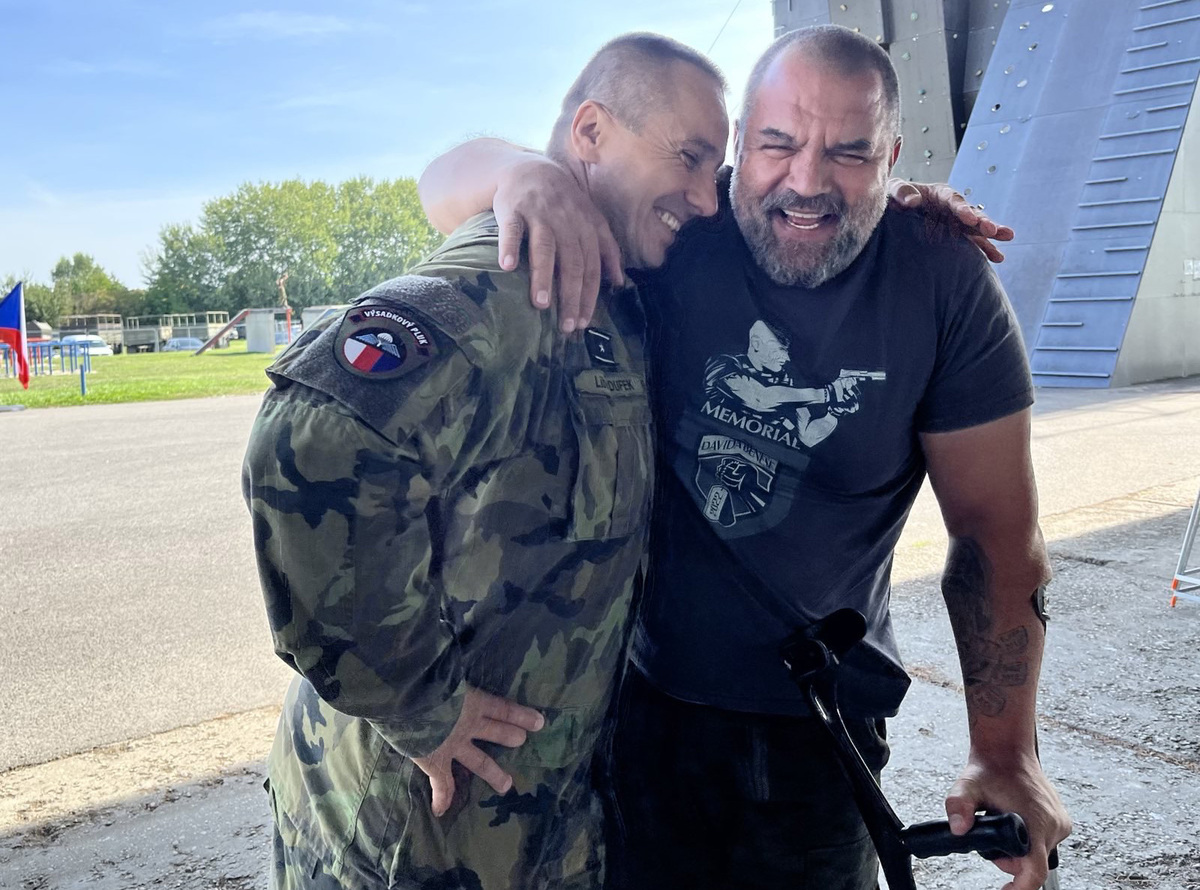
Whether it is the reimbursement of specific medical treatment, the purchase of above-standard compensatory aids or assistance during natural disasters, the Military Solidarity Fund (MSF) is ready to address the situation immediately. In extremely serious cases, the MSF Committee is able to act even within days, and once the application is approved and the contract is signed, there is only a minimal delay before the client receives the money in his account. Anyone can make a complaint. The social workers of the Care and Support Division of the War Veterans and War Graves Department of the Ministry of Defence are able to provide advice or clarification. They also carry out local enquiries as an integral part of the process. They often help to arrange other forms of support and assistance, such as legal or psychological services.
Aid programmes
For the sake of clarity, the areas of assistance are divided into four categories, which clearly define not only the purpose of the assistance but also the maximum amount of assistance.Bridging, probably the most commonly used programme, is designed to provide financial stability while the applicant is dealing with a serious personal or family situation, whether it is a loss of income due to a death in the family, a serious illness or an accident. The "Equipment" program helps clients purchase or supplement the cost of medical equipment such as special wheelchairs, "stairlifts" or automobiles for disabled clients. This program can also be used to equip a home damaged by a natural disaster.
The Healthcare programme is mainly used by clients who need to finance specific treatments that are suitable for them but are not covered by health insurance. It makes a lot of sense, for example, in the treatment of oncological diseases. The last of the four strands of assistance is the 'Dependent Child' programme, which aims to support children whose parent has died.
Rising interest
The increasing awareness of the MSF is demonstrated by the growing number of applications. "By the end of 2023, the Fund had approved approximately 70 cases. This year, that number has increased radically. By November alone, we had approved 40 applications and another 14 are in the process of being processed. In total, we have paid out almost CZK 7 million this year," says the Director of the Department for War Veterans and War Graves, Colonel Robert Speychal, who is also the Chairman of the MSF Committee. "We have used this amount to pay for special medical aids for clients, to support them during unexpected income shortfalls, to pay for rehabilitation and, in one case, to pay for above-standard medical care for a very serious diagnosis. Unfortunately, we also dealt with seven claims for support at very short notice due to the sudden death of one of the parents of young children. We must not forget the assistance in dealing with the aftermath of the floods. We have provided assistance in nine cases and several others are under investigation," concludes Colonel Speychal.
The requests come from war veterans, but increasingly also from active-duty soldiers, virtually across all services. Of the applications supported this year, eight are from war veterans and 20 are from active-duty soldiers. Two of the approved applications were from soldiers who are within five years of leaving the army. Nine of the applications supported were from serving soldiers who also have war veteran status. Thanks to the targeted support of the DoD's war veterans care liaisons, even a World War II veteran applied for support. As a young girl, she was involved in helping partisans in Wallachia. Despite the enormous risk, she and her family provided them with food, clothing or medicine. At the venerable age of 97, she has now been bedridden for some time. MSF supported her son's determination to care for his mother at home and enable her to live out the end of her life with a loving family by reimbursing her for medical supplies.
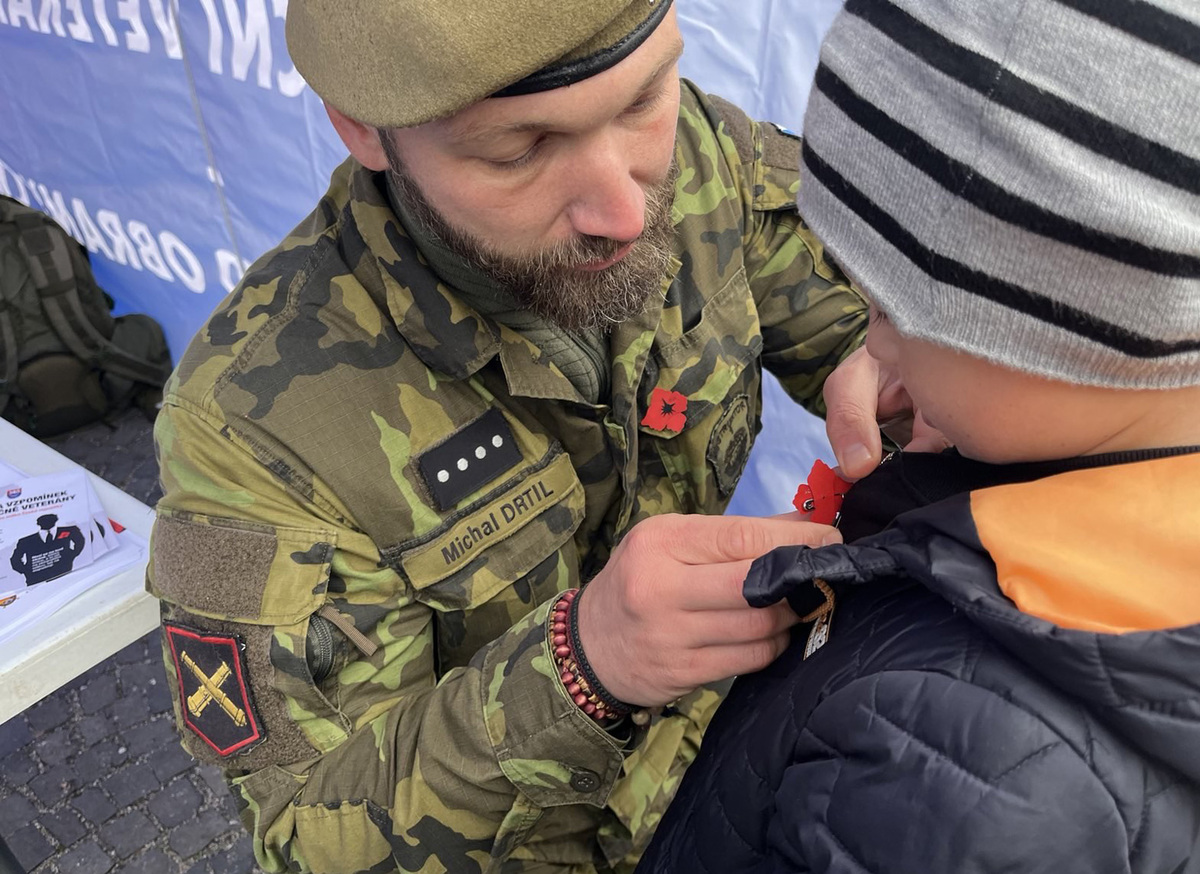
I never asked for anything
Soldiers or war veterans are overwhelmingly used to facing difficult situations and not asking for help. They often say that others certainly need more help, even though they are often in a situation where they themselves have devoted a large part of their lives to service and have gone through extremely difficult situations on foreign missions, such as Staff Sergeant Martin Kocourek. He wouldn't have asked for help on his own either, but when his friends from the army offered him that the fund could contribute to a special hand-operated car, he was blown away. Due to an unexpected neurological disease, he ended up confined to a wheelchair. Thanks to his extraordinary will to live, he is able to move short distances, but a specially adapted car can give him back his much-needed independence.
It is for these reasons that Chief Warrant Officers and Chaplains often ask for help. Among war veterans, the Department of Defense's war veterans care liaison officers can often catch a serious problem. Not only do a large number of suggestions come from them, but they are also 'on hand', so to speak, throughout the process. "Sometimes we find that in the past some applications have not been completed because the applicant was unable to complete the process, perhaps because of cancer. But now they have our people on hand," says Master Warrant Officer František Němec from the Department of War Veterans and War Graves. But even if it is "just" an increase in quality of life, he is convinced that it makes sense to take advantage of this opportunity. "I have been in the Czech Army system for thirty years. I never wanted for anything, and now an offer has come with help that can make our son take one step more again."
The toughest test came after returning from the mission
Veronika Rosická, a nurse, went through a difficult ordeal in Mali, Africa, when she almost died of malaria. Yet her toughest battle came after her return. Her son William was born six months pregnant, weighing half a kilo and fitting in the palm of her hand. Veronica spent the first six months with him in hospital, where William fought for his life several times. After his release, he had many health complications, compromised immunity, delayed psychomotor development and most importantly, he was unable to take food except through an abdominal tube. This has been an extremely challenging time for Veronica as a single mother, but her son has been a tremendous driving force. The Military Solidarity Fund helped her in her most difficult moments, whether it was special household equipment, a stroller, food for premature babies or financial support that allowed her to devote herself to the challenging care and rehabilitation of her seriously ill child. This year, thanks to additional support from MSF, her son was able to receive special medical therapies, exercise and rehabilitation.
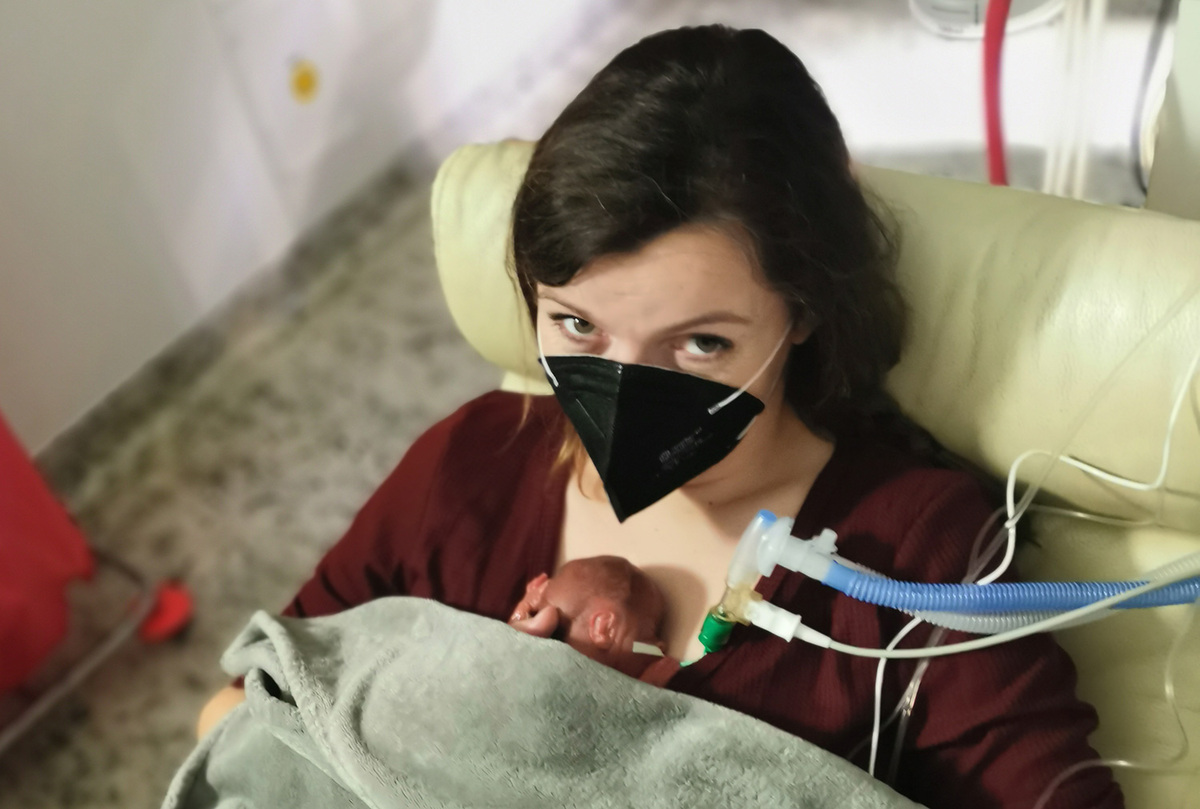
Regular support
The functioning of the Military Solidarity Fund is not possible without regular support. A standing order, even if only for a symbolic hundred a month, can ensure a sufficient financial reserve for all future applicants in the multitude of people who are in the army. "We appreciate the support of our donors, whether from companies, services, organisations or individual donors. Often wonderful projects are created to support the fund, such as charity runs, motorcycle events, fundraising T-shirts, calendars, and various charity auctions," concludes Col. Speychal. Not to be forgotten is this year's Veterans Day campaign and the fundraiser for our war veterans associated with the Czech Republic's Wolf Poppy. All the proceeds of the collection, which involved a huge number of services, associations, institutions, state enterprises and the League Football Association, go to the Military Solidarity Fund.
















